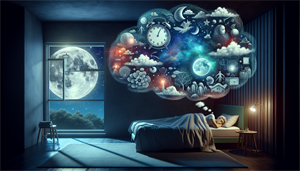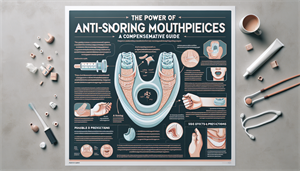
Do You Dream With Sleep Apnea?
Have you ever wondered about the enigmatic world of dreams and how they intertwine with our waking lives? Now, imagine the added complexity when sleep disorders enter the equation. The connection between sleep apnea and dreams is a fascinating one, drawing us into a nocturnal narrative that can offer profound insights into our subconscious minds. Do you dream with sleep apnea? Understanding this connection can provide valuable information about your sleep health.
Key Takeaways
Sleep apnea, particularly during REM sleep, can lead to fewer dream recollections, altered dream content, and distressing sleep apnea-related nightmares such as choking or suffocation. CPAP therapy for sleep apnea significantly improves sleep stages, allowing for more normal and less distressing dreams, highlighting the dual benefit of treating both physical symptoms and enhancing sleep quality. Addressing psychological factors like anxiety and depression is essential for managing sleep apnea’s impact on dreams, as they can exacerbate the frequency and intensity of nightmares associated with the condition.
Unraveling the Mystery: Do Sleep Apnea Patients Dream?
Sleep apnea, a sleep disorder typified by repetitive episodes of paused or shallow breathing, has profound implications on an individual’s health and wellness. However, does this disorder extend its influence into our dreams, the captivating and often perplexing narratives that transpire during our sleep? The answer is a resounding yes. Sleep apnea can significantly impact the ability of patients to recall their dreams. The reason lies in the realm of REM (rapid eye movement) sleep, the stage when most dreams occur. The interference of REM sleep by sleep apnea can hinder the attainment of deep sleep, the stage where vibrant dreams predominantly transpire. As a result, sleep apnea patients often experience fewer dreams and have difficulty remembering them. But it’s not just the quantity of dreams that is affected - the quality and content of dreams can also be significantly altered. Sleep apnea nightmares can occur, causing distress to the individual. However, the effect of sleep apnea on dreams is not uniform across all patients. Some individuals may have fewer dreams, while others may experience intense or disturbing dreams. The key takeaway? If you or a loved one have sleep apnea, your dreams may hold clues to your condition and its severity.
The Impact of Obstructive Sleep Apnea on Dream Frequency and Vividness
Obstructive sleep apnea, a variant of sleep apnea marked by a blocked airway, can notably disrupt sleep cycles. This can lead to sleep deprivation, reduced frequency and vividness of dreams, and potential nightmares associated with breathing difficulties. Research findings on dreams in patients with obstructive sleep apnea are contradictory. Some studies have reported fewer dreams in OSA patients, while others have observed an increase in dreams with emotional content, particularly those with violent and hostile themes. In severe cases, patients may experience vivid and disturbing dreams that can turn into nightmares, often involving negative emotions or sensations like choking, which can disrupt REM sleep. Considering the intricate relationship between obstructive sleep apnea and dreams, future studies are required to deepen our understanding of this link. It is recommended that future studies: Differentiate between REM-predominant OSA and non-stage specific OSA Use functional brain imaging Consider the impact of sleep apnea treatment options, such as CPAP therapy, on dreams.
Nighttime Narratives: Understanding Sleep Apnea Related Nightmares
A particularly noteworthy aspect of sleep apnea dreams is the common occurrence of nightmares. Sleep apnea-related nightmares often feature sensations of suffocation, choking, or drowning. Patients often describe dreams involving physical struggles to breathe, which can be attributed to the breathing difficulties experienced during sleep apnea episodes. These nightmares can lead to sleep disturbances and further exacerbate the impact of sleep apnea on an individual’s overall well-being. Understanding the nature of these nightmares and their potential triggers is crucial for developing comprehensive treatment plans that address both the physical and psychological aspects of sleep apnea.


